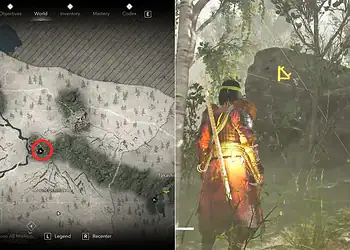Ariana Grande‘s voice has become one of pop culture’s most fascinating mysteries. After months of speaking in what fans dubbed her “Glinda voice” during Wicked promotions, a new interview clip shows the pop superstar seemingly adopting yet another accent—and the internet has thoughts. Many thoughts.
Table of Contents
Ariana Grande’s Voice Evolution Timeline
| Period | Voice Style | Context | Fan Reaction |
|---|---|---|---|
| 2013-2023 | Natural speaking voice | Pre-Wicked era | Widely accepted |
| Late 2023-2024 | “Glinda voice” (airy, higher) | Wicked press tour | Mixed reactions |
| November 2025 | New lower tone | Recent interview | “Why she sound like Selena?” |
| Overall Pattern | Multiple shifts | Method acting debate | “Third accent this month” |
The Latest Vocal Shift
A recent interview clip shared by @TinyElNews on X (formerly Twitter) caught fans off-guard. Grande appeared to drop the ethereal, breathy “Glinda accent” she’d maintained throughout Wicked promotions—but instead of returning to her familiar voice, she unveiled what fans described as yet another distinct tone.

Fan Reactions Poured In:
“Why she sound like Selena 😭😭” one user commented, comparing Grande’s new inflection to Selena Gomez’s characteristic speaking style.
Another observed: “My girl is evolving like a pokemon,” highlighting the multiple transformations Grande’s voice has undergone.
Perhaps most tellingly: “This is the third accent this month alone. We need someone to keep track at this point.”
The diversity of responses reveals how closely fans monitor Grande’s vocal patterns—and how confusing the constant shifts have become. For deeper insights on celebrity voice coaching and method acting techniques, understanding how actors modify their instruments provides important context.
The Glinda Voice Explained
During the extensive promotional campaign for Wicked (released November 22, 2024), Grande consistently spoke in a noticeably higher, airier register that matched her character Glinda’s vocal quality. Many attributed this to method acting—a technique where performers maintain character traits even off-camera to stay connected to their roles.
The Character Influence:
Glinda, the “Good Witch” in the Wicked universe, speaks with an affected, privileged tone befitting her upper-class background. Grande’s vocal shift during promotions suggested deep character immersion, similar to how other method actors maintain accents between takes.
Fans recognized this shift, with comments like: “She’s not using the airy glinda voice anymore but her normal voice/tone 🩷” and “We’ll miss you Glinda 🥹”
However, one perceptive user noted: “This just sounds like halfway between her galinda voice and her actual natural voice”—suggesting Grande might still be transitioning back rather than fully committing to a new vocal identity.
Method Acting or Something More?
The question dividing fans: Is this legitimate method acting dedication, or has Grande simply forgotten what her natural voice sounds like?
The Method Acting Case:
Many actors maintain character voices during filming periods. Daniel Day-Lewis, Christian Bale, and other respected performers famously stay in character throughout productions. If Grande views Wicked as the role of a lifetime, maintaining Glinda’s essence makes professional sense.
With Wicked: For Good releasing November 21, 2025, Grande has essentially lived with this character for over two years—plenty of time for vocal patterns to become habitual.

The Skeptical Perspective:
Critics argue Grande’s voice changes seem inconsistent and multiply beyond just “Glinda voice.” The observation about “three accents this month” suggests something more chaotic than methodical character work.
For official perspectives on vocal health and technique, Broadway.org offers resources on how stage performers protect and modify their instruments for demanding roles.
Director Jon M. Chu Weighs In
Wicked director Jon M. Chu recently praised Grande and co-star Cynthia Erivo’s dedication to their roles. In an October 28 interview with PEOPLE, he noted:
“These two are the two biggest voices in the world, maybe in our lifetime. They could have hated each other. There could have been insane divaship, but they always put Wicked bigger than themselves.”
Chu emphasized how both actresses “could immerse themselves in Elphaba and Galinda and they could find themselves within these characters”—lending credibility to the theory that Grande’s vocal shifts stem from genuine character work rather than affectation.
The Grande-Erivo Bond
The Wicked journey has forged a genuine friendship between Grande and Erivo. On November 1, Grande shared Instagram photos of matching “For Good” tattoos—a reference to one of the musical’s most emotional songs.
Erivo previously spoke about their synergy: “There’s a wonderful synergy when you’re working with a person who gets it, and they can look in your eyes and know exactly what you need, when you need it, without you having to say it.”
Grande reciprocated, stating she learned “a lot as a person” from Erivo beyond just professional lessons. This deep connection suggests both actresses took their roles seriously—supporting the method acting interpretation of Grande’s voice changes.
For more on celebrity friendships and collaborative dynamics in entertainment, understanding these relationships provides insight into creative processes.
Wicked: For Good Release
The voice controversy comes as Grande promotes Wicked: For Good, the highly anticipated sequel releasing November 21, 2025. With just 20 days until release (as of her recent Instagram post), Grande remains deeply connected to the promotional cycle—potentially explaining why her voice continues evolving.
The film continues Elphaba and Glinda’s story, with director Chu confirming Dorothy’s face won’t be shown, keeping focus on the central friendship between the two witches.
Frequently Asked Questions
Is Ariana Grande’s changing voice due to method acting for Wicked?
Most likely, yes. Ariana Grande has been deeply immersed in the character of Glinda for over two years, from initial filming through the extensive promotional campaigns for both Wicked (2024) and Wicked: For Good (2025). Method acting—where performers maintain character traits even off-camera—is common in demanding roles, especially musical theater adaptations. Director Jon M. Chu confirmed Grande and Cynthia Erivo completely immersed themselves in their characters. However, the observation that she’s had “three accents this month” suggests the transitions between voices might be less controlled than traditional method acting, possibly indicating she’s genuinely struggling to maintain consistency as she shifts between character mode and her natural speaking patterns.
Will Ariana Grande’s voice return to normal after Wicked promotions end?
Almost certainly. Once promotional obligations for Wicked: For Good conclude after its November 21, 2025 release, Grande will likely gradually return to her pre-Wicked speaking voice. Actors who use method techniques typically readjust once they’re no longer actively promoting or embodying a character. However, spending two-plus years deeply connected to Glinda’s vocal patterns may mean the transition takes time rather than happening overnight. Vocal coaches often work with actors to “de-role” after intense character work, helping them rediscover their natural speech patterns. Given Grande’s professionalism and vocal training as a singer, she’ll likely recalibrate her speaking voice once the Wicked chapter fully closes.







